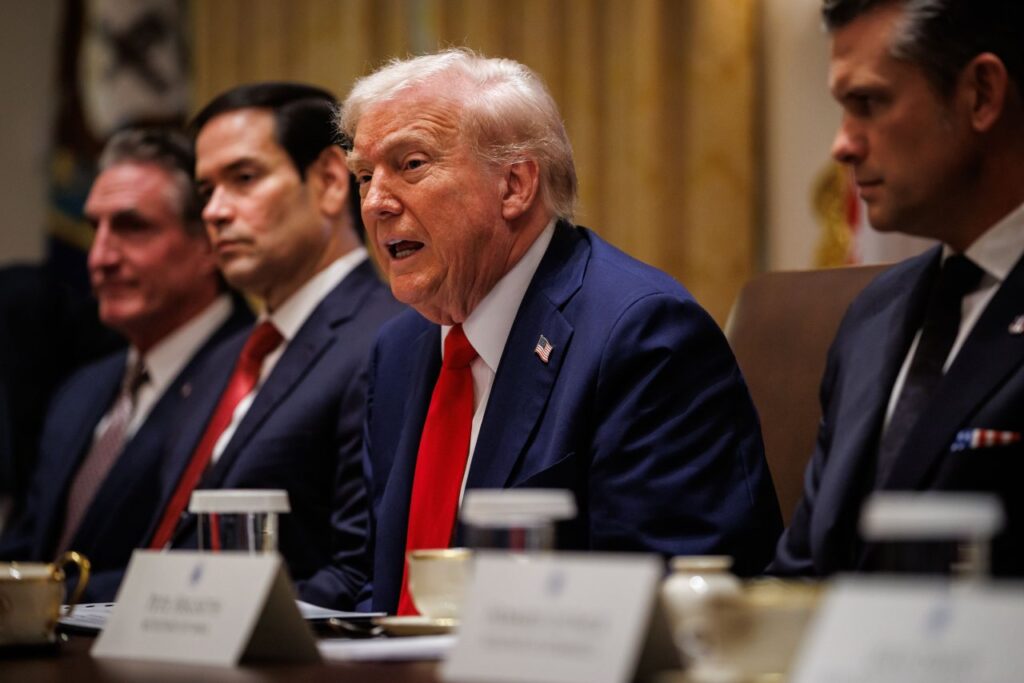
Former President Donald Trump has introduced a new peace initiative for the Gaza region, notably reversing the approach taken by the Biden administration. The proposal prioritizes Israel’s security and calls for a significant shift in U.S. foreign policy toward the Middle East. This plan aims to address longstanding conflicts and foster stability in the area.
The initiative was announced on October 15, 2023, during a press conference held in Washington, D.C. Trump emphasized that the new strategy would enhance Israel’s defensive capabilities while promoting dialogue with the Palestinian Authority. He stated, “We must ensure that Israel’s security remains at the forefront of our efforts in the region.”
Trump’s plan includes a multi-billion dollar aid package aimed at bolstering Israel’s military infrastructure. The proposal allocates approximately $3 billion annually to support defense systems, including Iron Dome and other missile defense technologies. This funding is expected to facilitate advanced military cooperation between the United States and Israel, a cornerstone of Trump’s foreign policy vision.
Additionally, the proposal outlines measures to encourage economic development in Gaza. Trump suggested that improved economic conditions could lead to a more stable environment, which would benefit both Israelis and Palestinians. He noted, “Economic prosperity is essential for peace. When people have jobs and opportunities, they are less likely to resort to violence.”
The former president’s approach contrasts sharply with that of President Joe Biden, who has emphasized a balanced approach that includes addressing Palestinian rights and humanitarian needs. Critics of Trump’s plan argue that focusing solely on Israel’s security could undermine efforts to achieve a lasting peace. Scholars and international relations experts have voiced concerns about the potential for increased tensions as a result of this unilateral approach.
In response to Trump’s announcement, the Biden administration reiterated its commitment to a two-state solution, which envisions an independent Palestinian state alongside Israel. A spokesperson for the U.S. State Department stated that the current administration remains dedicated to diplomatic negotiations and collaborative efforts to ensure stability in the region.
The impact of Trump’s new initiative on the ongoing conflict remains uncertain. Observers point out that while the proposal may resonate with some segments of the Israeli population, it could alienate Palestinian leaders and exacerbate existing tensions. The potential for increased violence in the region raises questions about the sustainability of this new approach.
International reactions have varied, with some leaders expressing support for Trump’s focus on Israel’s security, while others caution against neglecting Palestinian rights. United Nations officials have urged both parties to engage in dialogue and prioritize humanitarian issues to prevent further escalation.
As the situation unfolds, the effectiveness of Trump’s Gaza peace initiative will likely depend on its reception by both Israeli and Palestinian communities. The coming months will be crucial in determining whether this new strategy fosters peace or deepens divisions in one of the world’s most enduring conflicts.
In conclusion, Trump’s peace initiative marks a significant departure from previous diplomatic efforts in the region, emphasizing Israel’s security while proposing economic measures for Gaza. The long-term implications of this strategy will unfold as both domestic and international stakeholders respond to this new approach.







